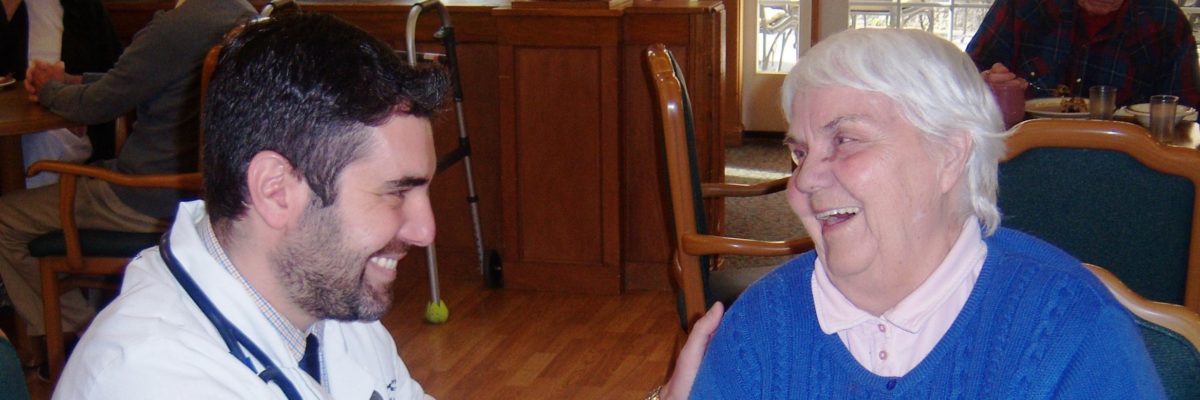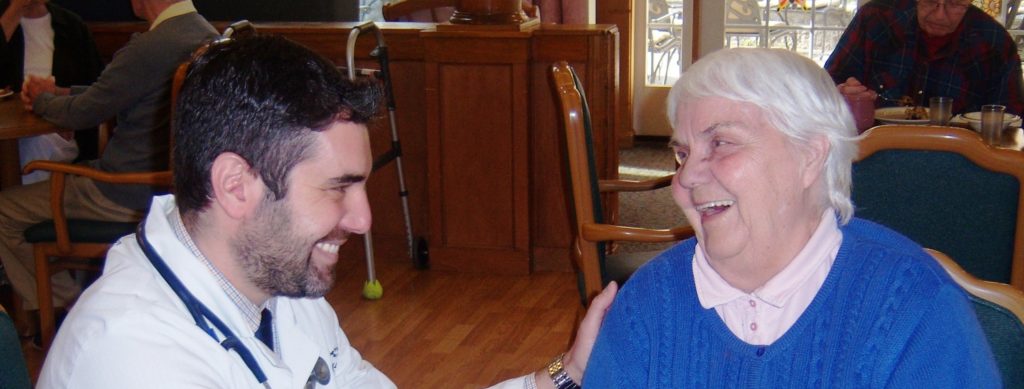Students will join the geriatric medicine faculty in the diverse settings where older adults might receive health care. These include:
- outpatient primary care for adults over 60
- outpatient consultative geriatrics care
- inpatient/hospital based geriatrics consultation
- home based primary care (both at private homes and assisted living locations)
- nursing home care for patients with dementia
Students will have the opportunity to learn about dementia diagnosis and treatment, delirium prevention and management, supporting caregivers of people with serious illness, advance care planning, falls prevention, polypharmacy and deprescribing, and working in interdisciplinary teams. Students will be expected to see and evaluate patients for a broad range of concerns with the supervision of a geriatrician.
At the end of the month, students are expected to leave with confidence about completing cognitive screening tests (Mini-cog, MoCA, SLUMS), differentiating delirium from dementia, obtaining a comprehensive medication reconciliation and prioritizing pharmacologic targets for deprescribing, discussing different types of advance directive options with patients, and creating a comprehensive plan to minimize falls risk.
Didactic education occurs on a dedicated half day once per month and students will be asked to participate in journal club as well as the didactic topics on the schedule for that month.
Geriatrics is that field of medicine that devotes itself to best practices of caring for older adults. The core focus is around the “4M’s” of geriatrics: Mind, Mobility, Medications, and Matters Most. We pride ourselves in addressing clinical complexity and helping patients and care teams form plans that are patient centered and concordant with individualized health goals.

